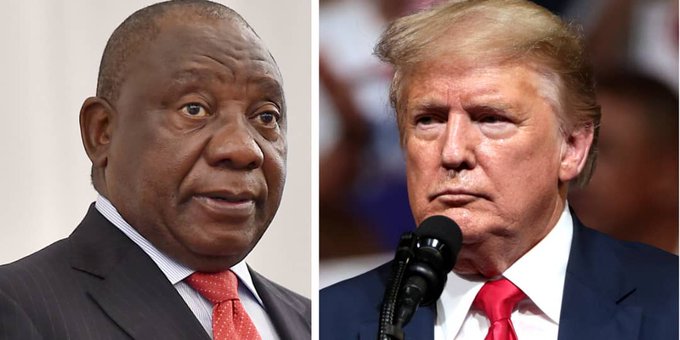In a recent development, former U.S. President Donald Trump’s executive order issued in February has sparked controversy as it criticized South Africa’s approach to land reform and raised concerns about alleged racial violence. The order drew sharp reactions from the South African government, which contests these claims by highlighting the nation’s tumultuous history marked by colonialism and apartheid. Despite the abolishment of apartheid more than three decades ago, South Africa continues to grapple with persistent inequalities, particularly in land ownership and economic opportunities.
The executive order’s focus on land reform in South Africa has reignited debates on racial dynamics and historical injustices in the country. Critics argue that the issue of land redistribution is deeply intertwined with the legacy of apartheid, which systematically disenfranchised the Black majority and concentrated land ownership in the hands of the white minority. This historical context underscores the complexities of addressing land reform and racial disparities in a post-apartheid era.
South Africa’s history of colonialism and apartheid has left a lasting impact on the country’s social and economic landscape. The legacy of discriminatory policies and practices has created enduring structural inequalities that continue to shape the lives of South Africans across racial lines. Efforts to redress these historical injustices through land reform and economic empowerment initiatives face significant challenges, including resistance from vested interests and the complexities of navigating a deeply divided society.
The Trump administration’s executive order has further strained diplomatic relations between the United States and South Africa, raising concerns about the implications of foreign intervention in domestic policy matters. The South African government has emphasized the need for constructive dialogue and cooperation to address the complex issues of land reform and racial equality, underscoring the importance of respecting national sovereignty and historical context in addressing these challenges.
In conclusion, the controversy surrounding Trump’s executive order criticizing South Africa’s land reform efforts highlights the complexities of addressing historical injustices and persistent inequalities in the country. As South Africa continues its journey towards social and economic transformation, the need for inclusive and sustainable solutions that take into account the country’s painful past and complex realities remains paramount.









Leave feedback about this